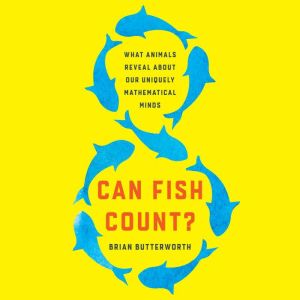

Can Fish Count?
What Animals Reveal About Our Uniquely Mathematical Minds
Author: Brian Butterworth
Narrator: Brian Butterworth
Unabridged: 10 hr 6 min
Format: Digital Audiobook Download
Publisher: Basic Books
Published: 04/26/2022
Categories: Nonfiction, Science, Cognitive Science, Life Sciences, Zoology, Mathematics, Nature, Animals
Synopsis
The philosopher Bertrand Russell once observed that realizing that a pair of apples and the passage of two days could somehow both be represented by the concept we call “two” was one of the most astonishing discoveries anyone had ever made. So what do we make of the incredible fact that animals seem to have inherent mathematical abilities? As cognitive psychologist Brian Butterworth shows us in Can Fish Count?, many “simple” animals—such as bees, which count trees and fence posts, and guppies, which can size up groups—have a sense of numbers. And unlike humans, they don’t need to be taught. In telling animals’ stories, Butterworth shines new light on one of our most ancient questions: Just where, exactly, do numbers come from? He reveals how insights gleaned from studying animals can help us make better sense of our own abilities. Full of discovery and delight, Can Fish Count? is an astonishing journey through the animal kingdom and the human mind.


